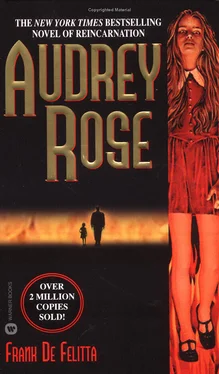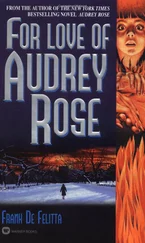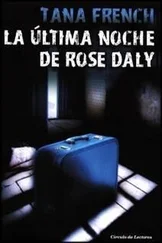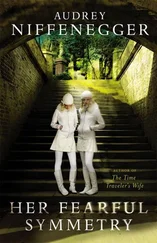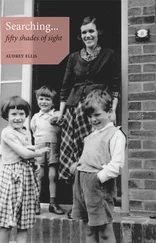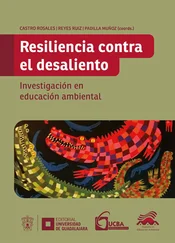“Did you sit in on these sessions with the child?”
“No.”
“Were you with her at the apartment?”
“No.”
“Did you ever observe the child during one of her nightmares?”
“No.”
“Therefore you relied on what Dr. Vassar told you she had observed?”
“Yes.”
“Then, when you say you came to conclusions with, her, you’re basing your conclusions only on what Dr. Vassar told you she heard or saw?”
“Yes.”
The district attorney studied some notes and, after the full impact of his witness’ testimony had been absorbed by the jury, renewed his questioning.
“Tell me, Doctor, this matter of the child ‘appearing’ older during her seizures, of performing functions and displaying greater muscular skill and coordination than a child her age normally would—is there not a circumstance under which such behavior may be seen to occur, a circumstance which you as a psychiatrist should be quite familiar with?”
Seeing the perplexed look on the witness’ face, Velie went on, helpfully: “Is not hypnosis a fairly commonplace psychiatric tool in usage today among people in your profession?”
“Well, yes—”
“And is it not true that under a hypnotic trance a subject may be induced by suggestion to perform physical feats well beyond his normal capabilities during the wakened state?”
“Yes, but—”
“Thank you,” Velie interrupted. “You have answered my question.”
Brice Mack was watching the district attorney like a hawk, ready to strike, ready to ask Judge Langley to instruct Mr. Velie to permit the witness to give his questions the deliberate and careful consideration the jury required of an expert witness, but he held back, allowing the prosecutor to pluck half answers from the witness and preferring to await his own moment on redirect to fully explore the issues being raised.
Velie, meanwhile, had picked up Dr. Vassar’s notebook and was flipping through its pages.
“Turning now to the matter of the child’s groping motions toward the window …” He found the entry he was looking for. “‘… the window seems to be her main goal … the glass pane presenting a barrier of prodigious heat … stumbles back, falls, weeps …’ and so forth. I put it to you, Dr. Perez, isn’t it conceivable that if someone is trapped in a building during a blizzard and is seeking to escape through that window but is unable to touch it because the window was so cold as to hurt his hand, that this, too, might account for the kind of behavior described here by Dr. Vassar?”
“Well, you see.…”
“I’m only after a simple yes or no. Is it or is it not possible?”
“Well, it’s possible …”
“Thank you.” Velie flipped to the back of the book. “This final entry of Dr. Vassar’s, which, by the way”—Velie’s voice became pointed—“counsel for the defense seemed disposed to bypass, deals with Dr. Jung’s archetypes as a possible answer to account for the child’s behavior. What is the significance of her reference to Dr. Jung’s archetypes, Dr. Perez?”
Doctor Perez took his time about answering.
“It would be hard for me to say. I don’t really subscribe to that theory myself.”
“The theory being?”
“The theory she refers to is one that suggests that there is, within the human mind, the capacity to have memory of events that a person had not experienced. Events that are experiences of the human race, but not experiences of the individual. Dr. Vassar, because she studied at the Burghölzli, probably was influenced by Jungian theory and may have reached for that conclusion. Dr. Vassar was not herself actually a Jungian, but it may have been her only way to explain this behavior, since there is no way to explain the reenactment of events a person had not experienced in life unless, of course, you believe in reincarnation.”
There, it was said, Janice thought. For the first time that day, the word was actually said. And strangely, the first to bring it up was the man of science.
“In your opinion, does Jungian theory extend toward reincarnation?”
“No, I don’t really think so. What I think Jung believed was that the experience of generations of prior individuals created a kind of inheritance of memory. Just as earlier experiences leave genetic traces physically, he believed they left genetic traces on the memory. But I don’t think he believed that individuals literally had a prior existence.”
“What do you believe, Dr. Perez?”
“What?”
“Do you believe in reincarnation?”
A startled laugh escaped from the witness.
“No,” he said. “I do not.”
Brice Mack’s confident smile successfully shielded the concern he felt at hearing the tenor of Perez’s answer and noting the jurors’ smiling faces. Still, there would be moments of high drama aplenty soon to come, he was certain, that would bring the jury back to his table.
Velie continued.
“Dr. Perez, are there many people in the world today, to your knowledge, who believe in the supernatural?”
“Yes, of course.”
“From a psychiatrist’s point of view, what is the basis of this belief in the supernatural?”
“Well,” Perez said soberly, “we are most of us terrified at the thought of death, the sense of finality of death. And if one is religious, one may avoid accepting death as final by believing in an afterlife. But the fear of death and the fear of not existing lead many people to try to find something that will give them a feeling of continuity. That is one aspect. Another aspect is that there is so much about human behavior that is mysterious, unexplainable, that presumably has some rational explanation, but that we can’t explain now. And people, just by the nature of human curiosity, are driven to try to find explanations for things that are mysterious and supernatural to them. But I as a scientist assume there is no such thing as the supernatural, only things about nature we as yet do not know.”
“But you do not think that reincarnation is one of those things?”
“No, I personally do not.”
“Thank you. That is all.”
Brice Mack, rising, bowed his head to Scott Velie and approached the witness.
“Just a few more questions, Dr. Perez, if you don’t mind. I believe you were prevented from amplifying on your answers to several of Mr. Velie’s questions. Specifically, the one concerning hypnosis as a means of inducing a subject to perform feats beyond his normal capabilities. In your opinion, does this suggestion, in any way, apply to, or explain, the behavior of Ivy Templeton as reported in the entries on January 18 and February 20, 1967?”
“No, of course not. I was going to say that the nature and conditions of a hypnotic trance and a somnambulistic form of hysteria are entirely different. Under hypnosis a subject is entirely under the control and is responsive to the examiner who is conducting the experiment. In a hypnotic trance a subject will make an overwhelming effort to obey all commands given by the examiner and even display physical dexterities that go beyond a subject’s skill during the wakened state, but only on command of the examiner. In the somnambulistic state, however, a subject is under no such influence and is either recapitulating or expressing behavior of an earlier, deeply repressed traumatic experience. In each case, the conditions are entirely different.”
Brice Mack accepted his explanation soberly, then steered the witness toward the issue of reincarnation.
“Although you expressed a disbelief in reincarnation, Dr. Perez, to your knowledge, are there scientists who do believe in reincarnation?”
“Yes, I suppose there are.”
“Do you suppose there are qualified doctors, psychiatrists, who believe in reincarnation?”
Читать дальше
